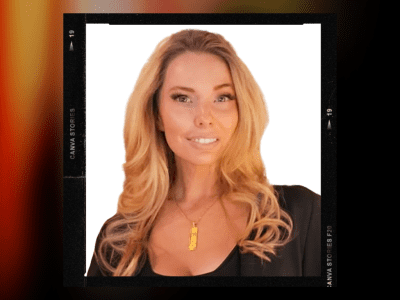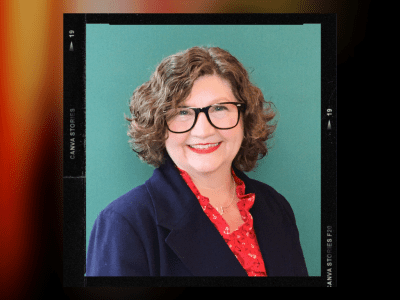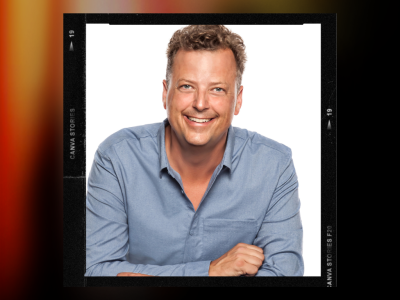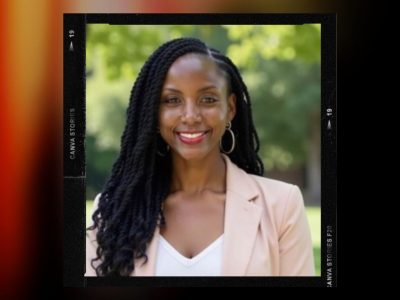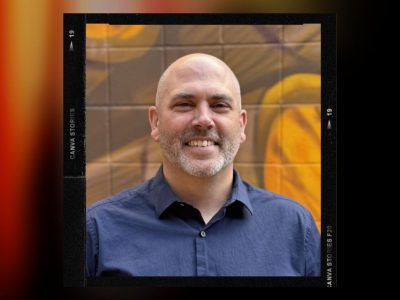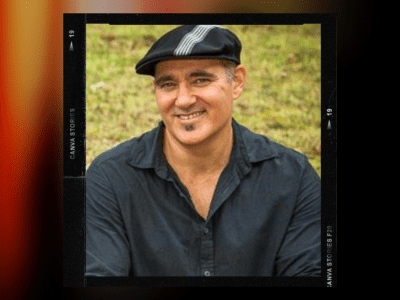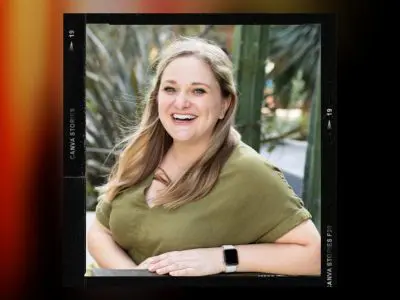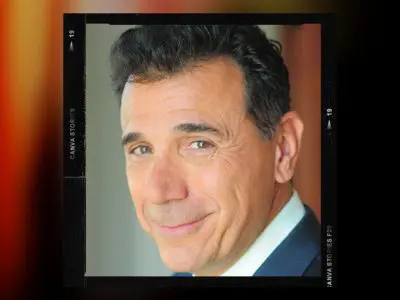Sustaining Culture in a Hybrid Workplace
w/ Daphne Hoppenot, David Goldstein
Use the buttons above to listen now.
Transcript - Sustaining Culture in a Hybrid Workplace
Rich: On this episode of team building saves the world. The one thing that we discovered was that so much easier to get those scattered personnel on virtually or a hybrid of virtual and live than it is to get everybody in low and location.
Daphne: It’s just a different reality for people that enter the workforce. Always attached to work through, uh, largely through a computer.
David: It’s such a, it’s such a wave if I think, you know, as we’ve seen the last month or so I think people are ready to get together in person.
Rich: Is there any way you guys can see where hybrid can actually help to build this culture of.
Rich: hello team. It’s me, your old friend, Rich Rininsland host of team building saves the world, the show where I speak to the leaders and innovators in employee wellness and corporate and corporate culture and how it reflects in the world of today. And today we’re discussing hybrid events with Daphne Hoppenot founder of the Vendry event planners and longtime friend of the show and founder of TeamBonding David Goldstein. But first I need to share some love with my supporters, at TeamBonding. If your team is ready to experience teamwork through the power of play, then visit teambonding.com to learn more. Now team join me in welcoming two leaders in the event organization and team building industry. Daphne Hoppenot and David Goldstein. Hi guys.
Rich: That’s just a handful of people I keep trapped under my desk, my desk Daphne they’re here just to applaud you
Daphne: So honored. Maybe one day they’ll get out. Just kidding.
Rich: I let them out for air like every few hours. It’s fine. I mean, they have to hunt for food, but that’s something else. Welcome. Thank you so much for coming on board.
Rich: Um, as you guys know, we are discussing hybrid events today. Uh, David, let’s start off with you. Can you just translate what hybrid actually means to, to our team out there?
David: To ask for TeamBonding a hybrid is a combination of an event that is happening either with some of the folks in the office or at an, or an activity or an event and some of the folks virtual.
David: So it’s the combination of virtual and in-person and as such it’s, um, it’s hybrid. It’s a little of both.
Rich: Okay Daphne anything you want to add to that?
Daphne: Yeah. I mean, you know, it’s, I have two perspectives. Our team is hybrid. And so it’s a, it’s a challenge and opportunity we explore just personally as a company. And we’ve certainly seen a lot of activity on our platform around hybrid team building. So we can talk more about that.
Rich: But in the world of today, where while COVID is still a thing that is here and it seems like it’s going to be for much longer, our restrictions have fallen away.
Rich: The government has agreed to sort of mask mandates are no longer really a thing. At least leaving it up more it seems to the individual’s perspective. I mean, even in the state of the union address, President Biden actually stated how he wants to see companies going back to work in their offices to fill the cities again, even with the great resignation being what it was and people moving away from cities half the time.
Rich: So Daphne, let’s start with you. Is hybrid a valid solution to the corporate needs of today, or is this something that just is here for now, but is on its way out?
Daphne: Yeah, I mean, it’s funny you even mentioning hybrid in relation to COVID. So the Vendry has been back in office for the most part since last September, um five days a week, nine to six.
Daphne: Now we do have some employees that are remote. But I don’t even tie like future work hybrid to COVID anymore. Like that’s for me, how mentally I’m already in the new reality where like a portion of our company goes to work every day. COVID isn’t, hasn’t really affected that. But for a lot of tech companies, at least where work can be done through the computer, that’s my industry.
Daphne: I mean, hybrid’s here forever. It’s honestly no longer even tied to COVID.
Rich: David, what about you? Uh, what are we seeing from the team building side? Are corporations saying let’s get away from virtual as much as possible and get everybody back in person for these events?
David: Well, I think, well, I think what has happened with hybrid is it sped life up a little bit.
David: I think, you know, I was not a big fan of remote work prior to the COVID and the pandemic. I didn’t, you know, I’ve I had examples. I had people that would do their laundry and go shopping and do all these things and didn’t seem like they were working during the time that they were working at home, but through the pandemic, we have successfully navigated thousands of events even to the point where we didn’t have power in the office a few days and we still were able to do it.
David: So I think it feels like it sped, sped life up where this was going to come anyway. It just probably, I didn’t think it was going to come too soon, but you know, two years into it, I think remote work for a lot of people is, is it a legit valid thing. Do I think it’s better than in-person? No, I think in person always is the better option, but I think it’s no longer a placeholder as far as a way to get people together.
David: It’s a way to engage people with what you’ve got. And I think it opened up a lot new, a lot of new doors that we wouldn’t have opened up for many years.
Daphne: What, what I’ve observed is basically that this is like my personal opinion, and this is more on the future of work. But I think remote work, obviously there are only certain functions that can do remote work.
Daphne: So, you know, talking just about the types of jobs that can do remote work. Right. I think it works well for people that are, that are several years into their career, at least. And so I’ve observed that. For example, my friend’s husband works at a law firm. A bunch of the partners are all, you know, age 30 plus they’ve graduated law school.
Daphne: They’ve had a couple of years, you know, in the workforce, um, in person and working from home, doesn’t matter for them as much for companies that rely on a young workforce. My honest opinion is that for young professionals, Remote work might be a disservice to them.
Rich: Why? So?
Daphne: Uh, I just think you get better training in person.
Daphne: Okay. A little more one, especially that one-on-one.
Daphne: I think you get better training in person. I think it’s hard. I think virtual can be very transactional and it’s hard to like have those in-between moments, both socially and professionally. Like, you know, when, when life is on zoom, um, and maybe the metaverse will solve for that.
Daphne: Um, but the other thing that I would observe and maybe largely leaning on my experience as a 20 something is that work was part of entering the worlds and adult work and social life were sort of fundamentally interconnected. Um, a lot of people, at least in New York would say that many of their best friends are from like their work life in their twenties.
Daphne: And so it’s just a different reality for people that enter the workforce, always attached to work through largely through a computer.
Rich: David, what are we seeing from the corporate side from the clients? Are they requesting, going back to live is virtual, still selling as much as it was?
David: It’s such a, it’s such a way if I think, you know, as we’ve seen the last month or so I think people are ready to get together in person.
David: Our leads have changed from virtual 90% to in-person 90%, but I think that’s too far of a swing. I think that’s a swing for now. When people want to get together, they haven’t seen each other. I think virtual will come back, but not as strong as it was when people couldn’t go out. But I think if possible, I believe certainly in the offices a lot, you miss being virtual. I mean, managing a small company, we have what, 23 people at TeamBonding you know, maybe 10 of them are virtual all the time. It’s very difficult to manage and maintain and train and engage and reward, you know, and keep everyone involved and being part of a team is there’s a personal person to person contact, you know, because I’ve met you in person.
David: I know you. Uh, yeah, I’ve, I’ve spent time with you, not all intentional time. Sometimes that we’ve been at events together, sometimes that you’ve done something. I think that’s the irreplaceable part that I I’m anxious to see kind of how that’s replaced certainly for the younger generation, but you know, for my generation has been going to the office, my entire life.
David: And here I am working from a thousands of miles away from the office totally happy. I mean, it’s got a lot of benefits, you know, there’s no reason I need to be in the snow.
Rich: Especially this week. It’s been a cold, cold spring start. Exactly. David
David: I’m in St. Augustine, Florida. Yeah. It’s, it’s been very fortunate.
David: I mean, of course, you know, there’s no COVID here in Florida, but other than that, it’s
Rich: yes. We’ve, we’ve all been loving hearing about things in Florida for the past couple of months. But Daphne let me get back to asking you, uh, besides onboarding, what what else are we looking at here? Um, your clients, for example, are they wanting virtual events?
Rich: Are they wanting live events?
Daphne: Yeah. I mean, I, to be honest, what we primarily see, so a lot of, so we are just, so everyone understands. We are a marketplace where corporate event teams can source venues and vendors for their events. Um, our primary corporate, the primary sort of type of corporate teams that use us, I would say, fall into the tech banking and consulting media categories.
Daphne: We see a lot of off sites. And so we do still see companies doing like, you know, virtual cocktail classes and chocolate tastings and stuff like that, but those needs have definitely dropped like 90% from a peak of, of, you know, December, two years ago. And what we see taking its place is companies probably investing more in sort of offsite experiences.
Daphne: And so, you know, having virtual or hybrid teams and paying more to gather them in person and facilitate that in-person team building
Rich: Well what is the difference cost-wise? Um, I mean, if you’re looking at the differences, because the one thing that we discovered was that it’s so much easier to get those scattered personnel on virtually or a hybrid of virtual and live than it is to get everybody in low and location.
Daphne: Yeah. I mean, I think in our, in the, in the categories that we operate in, a lot of those companies are giving up office space or some portion of their office space, budget to pay for the off-sites that they’re facilitating. So, I mean, obviously flying everyone to a hotel or to, you know, an onsite at the office is more expensive, but that budget is netting out because they’re saving on office space. Um, so I would say that it’s coming, that those, those budgets are largely coming out of the office based category. And then of course you have hybrid events. I mean, our team did a hybrid event for Black History Month, but hybrid can be very unequal.
Rich: How so?
Daphne: There’s a better word for that, but
Rich: Unbalanced?
Daphne: Yeah, there’s a better word. It’s just not coming to mind, but basically I think, you know, if you have a bunch of people in person and then somebody’s on a screen, it’s just, it’s a little hard to make it, that everyone feels sort of equally included in the situation.
Daphne: And so in that sense, our team has largely optimized for like, we have in-person stuff. And then for Black History Month what we did was we did something on the screen. Yeah. And so, so even the in-person people were looking at the screen and the virtual people could sort of zoom in, but yeah, it’s tough. It’s tough.
Daphne: I’m curious what David would say.
Rich: Yeah. David, how do we fix a problem like that? Because we’ve, we, you and I have discussed this personally talking about a show we were thinking of doing with both the virtual and live audience. How do you fix the disparity between the people who feel engaged because you’re there in their face and the people who don’t, because they’re watching third person view from a camera?
David: Well,
David: I think eventually it’s not going to be preferable to be hybrid. I think what Daphne was saying, as far as about budgets going from office space to, to these types of events, we’re, we’re investing in, um, retreats. I think people are going to get together, you know, once a year, once a quarter, they’re going to get together more often, especially if they’re not in the office, there there’s a value to being together.
David: So I believe retreats are going to fill some of that gap. But then they, you know, they saved the money from the office. And, you know, especially if you’re looking at New York or some of the bigger cities, I mean, you, you know, it can be a cost savings, but there will be things that you can’t turn the page on. I mean, as, as you’ve seen, we’ve done, uh, events with people from other countries.
David: So, you know, those people are not going to, it’s not ever going to be worth it to fly over for an hour team building event, but it’s, you know, there’s a way to engage people together. But some of the things that we’ve done with team building is one of the things we’ve done as far as chain reaction and chain reaction was a really good event where they carried one of the team members, one of the virtual team members with them to the various stations, the people, you know, and that person had to interact as part of the team.
David: So there are ways to engage the, you know, them virtually. I used to joke. Um, Rich remember Stephanie, when she was in the office, when she went up for maternity leave a few years ago, I was, I was looking into a robot that basically was, you know, could roll, you know, had a little iPad on top and could roll into the offices.
David: And, you know, as if, as if they weren’t as if she was there. So I think technology is going to continue to adapt to a workforce that is global, that is, uh, some virtual, some in person. And it’ll adapt to time to get to events for Daphne was saying off-sites I was reading today about on-sites. So, you know, maybe you have people come to the office, you know, on a particular day, and that’s the day you do your team building event, or that’s the day you do your event.
David: So instead of an offsite, it’s an onsite. So I think things will, you know, I think everything happened so fast and now things are gonna have to catch up.
Rich: Okay. Speaking of catching up, I have to disagree with you on something, David. Um, I personally think it’s worth it to travel just to get me alone for an hour leading a team building event, but that’s just my opinion. But speaking of, I want to actually take a second step away for a real quick second guys from you. So I can tell you all about a company that David and I are both very proud to be a part of TeamBonding, TeamBonding was founded over 20 years ago with one simple question.
Rich: How can employees have a great time while fostering strong, authentic bonds between people who work together? They’ve created a catalog of innovative events using the power of play as a learning tool and tapping into the correlation of work and play from scavenger hunts to jeopardy. And so, so much more the team bonding of activities live virtual and hybrid maximizes the impact of team building with an accent on fun.
Rich: Visit teambonding.com to schedule your event now. TeamBonding when you want seriously fun results.
Rich: And we are back with David and Daphne talking about hybrid events, guys. What’s the future going to look like? And is this something that we actually have controlled of?
Daphne: Yeah. I think something we were talking about earlier is interesting as it relates to this new remote work model, because, um, I’ve thought a bit about it as the Vendry builds out our remote team.
Daphne: The idea that how much does it matter if your remote workers are in your country or not? Because I think there is a, um, you know, there’s an idea that, well, if they’re remote let’s hire from anywhere in the world. Um, and there’s places around the world that you can get amazing talent for cheaper than the U S but then the downside of that is, you know, at the Vendry we’ve mostly optimized for hiring remote within the U S.
Daphne: For the sake of being able to buy a cheap flight and easily without passport issues or whatever, it gets somebody to the headquarters for an onsite as we were talking about earlier. So I think there’s an inclination as a founder to be like, well, let’s hire amazing talent from anywhere. And then as you think about the desire to, to foster in-person team bonding experiences, like it’s a little easier.
Daphne: It borders and password passports and light times are less than issue, which doesn’t need to be, you know, it can be in Canada, Mexico.
David: Well, I went, I’ll tell you a story about, I dunno what it’s going to be in the future, but I, you may have read the story today in our slack channel, but we had a funny story where we had a facilitator that was doing back to back game shows in their hotel rooms so that he flew to another venue and he, Paul was doing an in person event.
David: But while, while he was waiting to do the in person event, he was doing back to back game shows now, of course, that was great until the hotel manager was concerned that, you know, there was something wrong with this man in the hotel because he was hearing screaming and yelling and laughter and, you know, and he listened to the door and realized that he was in engaged in a team-building event rather than, you know, then needing of medical assistance.
Rich: Yeah. There are times where we do sound like that.
David: So I don’t know where it’s going to be, but I know where that was today.
Rich: That’s great. Is there any way that let’s look into the future? Is there any way you guys can see where hybrid can actually help to build this culture up? Because we do have people who are still having problems. We have people who have concerns.
Rich: We have people who have moved long distances away from where they were before the pandemic struck. I mean, everybody seems to be in such a rush to go back to the way things were. Isn’t it possible that we can actually use hybrid to create something new? And what kind of benefits can those hold?
Daphne: Definitely. I mean, I remember very distinctly, I don’t know, in my late twenties, I decided to stay home from work one day so that I can actually concentrate and not be like running around chit chatting with coworkers.
Daphne: And this was, you know, there’s never happened in the old days. I don’t know. We just went to work everyday. You didn’t, there was no work from home. And I remember like zoom, I think it wasn’t zoom. It was Google Hangouts, but Google Hangouts seeing into a meeting and people realizing I was working from home. And I just remember, I think that’s the one time I ever worked from home before the pandemic.
Daphne: I remember that day and remember feeling like I was playing hooky and now I have two little kids and it’ll, you know, my kid will be sick or for whatever reason, like sometimes I have to work from home and it’s such a relief to me. I think, especially as like the CEO that I can be home and set this example. It just it’s largely fluid.
Daphne: It largely doesn’t matter. And so I think it adds a convenience to, to our lives. That was an underappreciated opportunity before. Yeah.
David: I agree completely with that. I mean, I think you’re able to attract you know, we have four virtual assistants at TeamBonding as Daphne was mentioning earlier when people that, you know, that are part of our team, that we never would have had part of the team before, because they’re able to contribute virtually and they’re able to access us and we’re able to access them.
David: And it, you know, it saves people. I mean, one of the downsides of working for TeamBonding is we’re a little south of Boston, so it always limited us to who we could hire. You can’t hire anybody north of Boston cause God, they have to go through Boston to get to you know, to our office, look at Melissa, is there, it’s a perfect example.
David: I mean, she, you know, she was coming in one to two days a week and I’ve seen her one to two days in the last two years because she’s been able to work at home successfully remotely and do what she does. So I think it, it opens up a lot of opportunity, not only for companies to access different types of workers than they would have had before.
David: But it also offers to employees to be able to work for a company that they may not have been able to work for before if they aren’t geographically desirable.
Daphne: David I’m curious as you think about retreats, are you designing them differently now than you did before the pandemic?
Rich: That’s an excellent question. I think Daphne wants her own podcast David.
David: Absolutely. Um, I think, I don’t know if we’re designing them differently. I think we’re putting more of a focus on them. I, you know, we didn’t do a lot of retreats. We did some executive retreats and we did some adventure retreats and did you know, just occasional.
David: I think one of the things that happened to us during, during the pandemic, cause we, we, we dumbed ourselves down and we’re a team building company.
David: We knew how we know how to do this stuff. But during the pandemic, we started to do chocolate events and tastings and cheesemaking and all the things were like group activities. I think we need to move ourselves back up to where the outcome is. Is, is the goal. And what is it that the end of your retreat that you want to accomplish by being together for 2 4, 6, 8, 10 hours. Then we’d lost a little bit of that would people’s desperate need to get their teams together. Now I want to do a little bit more outcome focused.
Rich: What does outcome focused look like David?
David: Well, if you were a clients and well, actually I’ll give you a perfect example. From today, I had a client that was looking to do one event where they were creating a mural with students at a college and the outcomes they wanted to introduce themselves.
David: They had a particular, uh, a particular goal in mind, as far as what they wanted to accomplish from this experience. And we’re going to do a graffiti team-building event on the campus on a college campus for Holocaust awareness. So the you know, their, their desired outcome is awareness for their association awareness for the Holocaust, you know, their method or means to getting there is this graffiti event that should attract college students in a cool way to do something that brings attention to this particular organization.
David: So I think when I used to be in the sales department, it was always, for me, it wasn’t, what do you want? It was what are you at the end of the time that you’re together what is it that you want your people to feel or to experience and what have you, what do you want to walk away with? And I think that’s where we need to get back to.
David: And that’s where the retreats and the team building we’ll get back to our sweet spot of being able to deliver on the outcomes.
Daphne: That’s a really creative sort of avenue through which to achieve that outcome. And I feel like part of the challenge that I saw during the pandemic with team building is that the menu of the 10 standard things was it put out there, everyone did it once or twice, and then it lost the novelty. Right? Like I remember our team did a virtual chocolate tasting, whatever, the third week of the pandemic and we all had tons of cocktails and got drunk on zoom and it was fun and it was novel and it was like, whoa.
Daphne: And so, yeah, I guess I’m interested as you talk about that sort of creative concept with your clients. Yeah. I feel like that’s one of team building’s biggest challenges is like, oh, always something new and different.
David: Well, I think you’re absolutely correct. I think people did everything. We do. They did escape rooms, they did tastings, they did wine.
David: They did chocolate you know. So we had, you know, a hundred and something different opportunities and a good 20 of them everyone did, whether they did it with us or did it with someone else, but they’ve thought they’ve done it. So we’ve had to come back from the pandemic and reinvent what’s new, what’s different. What, you know, what can be worthwhile?
Daphne: Yeah.
Rich: So is this on them or is it more on us to be able to take into everything, the account of everything that the client wants, but still be able to offer them something of high quality? I mean, is it more about because do they come to you knowing what they have in mind?
Rich: And demanding that that’s what you give them or is it, they come to you knowing that they want either a personalized event or a team building event or what have you and then you give them the options they can go through?
David: Well, that’s a good question. It’s a question I answered yesterday. One of our facilitators, Dustin, you know, Dustin Reichardt, he’s one of our facilitators, but he’s also a hypnotist, a comedy hypnotist.
David: So we’re talking about adding comedy hypnotism to our in-person events. And one of the discussions was, you know, we don’t want to compete with TeamBonding as a hypnotist. I, he can get them for us all over the country, but they don’t want to compete with us as hypnotists because TeamBonding is so much bigger and has a bigger reach.
David: But the way I explained it to him is companies are not looking for us, looking for comedy hypnotists, from TeamBonding they’re looking, they’re looking for an experience that is unique and different and fun and funny. And then when they tell the account manager that that’s what they want. Comedy hypnotism might be suggested as well as other things that, to reach those outcomes.
David: So it’s a difference as far as having the variety, to be able to deliver unique programs that meet the needs of the clients.
Rich: Daphne, let me ask you, is that because you know, that part of the big reason we do events, that the reason these events are successful is because of the stories people can share after the fact.
Daphne: Yeah
Rich: We were there when this happened. We were there when he, or she did this or that, is that still as possible with a hybrid as it is with live?
Daphne: I mean, it’s interesting. I was reflecting on the many team building experiences I’ve done and our team, for example, we had an offsite in the North Fork of Long Island last summer.
Daphne: And one of the team building or bonding experiences we did was oyster shucking and I feel like a lot of team building that I’ve done has sort of been special to the locale we were in and sort of had a tourism component, you know, our team’s actually going to Charleston next week. So we’re doing a carriage ride and some stuff that’s specific to Charleston.
Daphne: So anyways, I was just reflecting on that and that’s a bit of, you know, it’s the memories made and it’s like, in, in these cases, I’m saying it’s like literally review there at the Boston offsite at the, when, you know, I remember at my other company where I was before, like the CEO had us all fly from New York to San Francisco for one night for an offsite.
Daphne: And, you know, that’s the, like, were you there for that crazy far away way offsite. Yeah. I think it’s more challenging with hybrid, but I also think that like we had great team building experiences virtually and your ears. It started off with a lot of the experiences that asked a lot of us as participants, right?
Daphne: Like now everyone, you know, pour this cocktail or now everyone it’s, you know, and I will say that for us virtually as a team, after a while we got exhausted by them. And after a while we started doing the things that like, we’re a little more than water cooler chat, right. Like, all right. Let’s everyone get on zoom and.
Daphne: Let’s catch up. I can actually say our engineering team here at the Vendry is hybrid and every Wednesday or at 1:00 PM or something, they go on zoom for 30 minutes and they play word games and I think it’s so lovely and they look forward to it. And it’s just that is a truly hybrid team-building experience.
Daphne: I think there’s six of them on there. And I think it’s just a bit of like virtual in person. We just want to chat like co workers, like ask about our weekends or something.
Rich: Do we think this is actually indicative of where we’re going? Or is it possible that, that we can make a change? I mean, do you think the common worker right now wants to go back to the office?
Rich: What are you seeing? Daphne?
Daphne: I think that young workers do, I think that my thesis is basically, I think companies that depend on a workforce with people in their twenties are largely going to go back in person. And I think that goes against like a lot of whatever news articles that would say that young gen Z are like digital nomads.
Daphne: So who knows? I, I don’t know how things will pan out. But I think that companies that depend on a younger workforce, you can’t just like have a multi-generational company where the young people are in the office and their managers and their managers, managers aren’t. And so I think a lot of that’s going to draw people back to in person now does in-person mean nine to six, five days a week now, but I also, frankly, I mean, I’m sort of old school.
Daphne: Our company is largely back in the office full time, but like, I also don’t really believe in the drop-in when you like model at least at a company, our size, that doesn’t work because the way I put it as like there’s 12 of us that come to office every day, like you sorta, the way we put it here at the Vendry is like, we are all collectively investing in what our office culture means.
Daphne: And that means that when you wake up and you get on the subway and you show up to work, you have, you can have the expectation that your coworkers are going to be there. And that, that requires collective bonding. And so we’ve just sort of all agreed to that. For the sake of culture, not productivity, we can work on our computers.
Rich: Okay. Then David, let me ask you a different question financially, how viable is hybrid?
David: Hybrid, you know, it’s, it’s another pivot. So, you know, I think in, in the beginning of the pandemic, I think we were all kind of in shock. I mean, as an event company, And I’m sure Daphne has these examples. We lost everything on a roster.
David: And then Ty, you know, from March, 2020, everything in the future was, was, was gone. So we had to reinvent and we had to re in, in not only do we have to reinvent ourselves, we had to reinvent the expectations of the clients. So the first three months, all we did was trivia and cocktails that’s all people wanted.
David: That’s all they knew as possible.
Rich: Sure.
David: I think, you know, the technology has come so fast. So between zoom and all the other platforms that are out there, there’s so much more that people can do. You know, I can go to a conference that I may not want to, you know, there’s, there’s a conference, uh, an event conference in London that I can go to.
David: In fact, you don’t have to go and get on a plane for it. So there’s so many more opportunities that we’re going to see virtually that will continue to open up new windows and new, new, new opportunities. I think what Daphne was saying about her company, is that she’s extremely lucky. She’s got a company that people, that people are passionate about and people want to be there.
David: They want to be there. They’re there. They’ve got a mission. I don’t know that every company is going to have that same attitude that they want to be together. So it’s it’s I think when things slow down, once the war is over and once the pandemic is behind us, I think we’ll evolve to whatever the new normal is.
Daphne: I also want to say, like, we have remote employees that are very, very valuable that like I would never, so we are, we are hybrid, it works for us and the way that it does and off sites.
Rich: Let me ask you this, Daphne, do your people in the office talk about those people? Like we talk about David?
Daphne: You know, so much our office chatters on slack and that’s uh,
Rich: Always written. Oh, it’s always oh it’s always there on paper.
Daphne: Oh really? I don’t know. I’m laughing. I was about to say we don’t really have private channels, but then I’m like, well, I guess I don’t know what channels I’m on
Daphne: it’s a new world. Like we, we haven’t, I mean, just speaking as with our company, which is obviously wherever we must insights, like they’re awkward things like hybrid meetings are super awkward and it’s like, You know, you have an open laptop on, or multiple laptops figuring out what to mute, what not to somebody in front of shifting of the round, like, like honestly as relates to hybrid I think needing tech, like that’s going to be the category that needs to be solved and a lot of that’s hardware, right? Like what are the right microphones? The right camera setups, because that’s here to stay. It’s not going away.
Rich: That was going to be my question, but I guess like Daphne let’s, let’s go with you.
Rich: Last question. Uh, just to wrap things up is hybrid something you are going to be pushing with your clients as a possibility, or is it just, let’s just see where they want to go?
Daphne: No, I would say that very few, so people can issue RPs on the Vendry and they can choose if the RP is virtual hybrid or in-person.
Daphne: I mean, this data point has stayed fairly consistent, which is only about 5% of the RPs say the event is hybrid. Now I think that’s because what hybrid means is also sort of in flux. So somebody will issue an RP say it’s a live event and then there’s live streaming from the event. But maybe the producer doesn’t think of that as a truly hybrid experience, I think all this is being fleshed out, but I do my, my perspective is that most events will identify as being virtual or live. And I think very few will be hybrid in that, like they’re selling a digital ticket for like a live concurrent digital experience, which is different from recording it and making that recording accessible during and after the event.
Rich: Okay. David, same question to you, uh, in our industry is hybrid something to push or is it just everybody wants either virtual or live?
David: I am so happy daphne said it that way, because you know, as you may know, we’re redoing the website. I mean, initially when we did the website in 2020, we came out with, okay, here are the options, virtual hybrid in person.
David: And, you know, focus. We focused on virtual now where it’s like virtual or in person and oh yeah hybrid is you tell us what it is that you’re trying to accomplish and then we’ll tell you what works in that scenario. So hybrid exists, but it’s not something I can define for a client and say, this is what a hybrid event is.
David: Because it isn’t.
Rich: Right.
David: It’s this is what I need. How do we make this happen? Do we beam in if it’s beaming, do we, you know, beam in a facilitator to over, you know, to a, to a, uh, an in-person event, are people in teams at home? Are they carrying a laptop with a team member? You know, what is it that they want to accomplish?
David: And then we look at our resources and our opportunities and try to put that together. So it’s a little bit more of virtual in-person, but hybrid is ask and we’ll see what we can make it for you.
Rich: So that always, that the way you use guys saying it, it sounds like hybrid is even, would be, I should say more appealing to a client because it is more of the, you tell us what you want and we’ll tell you how we can do this, but it’s their lack of knowledge of what it could even look like since this is all so new, that is keeping hybrid by the way.
David: Well, I think when we, when we went virtual in the beginning, we had the benefit of being part of a global network. So right before March, before we felt this, our partners in Asia were experiencing it. So basically what I believe that I’m doing, and I imagine Daphne’s doing the same thing is we’re five minutes ahead of the client.
David: You know, we’re trying to define what it is. So when they find us, you know, they’re able to get the answers that they need. So they’re finding out about it, but we’re trying to educate ourselves and get in a position to offer, to help them a little bit ahead of when they’re, they’re ready to need it.
Rich: Hmm.
Daphne: Yeah. You probably have to do more sort of consultative sales and education than before because people. There’s just more unknowns. And probably more contingency plan, right David? Like, well, what if.
David: Yeah, they used to, we used to know what they wanted. Now they just don’t know what’s possible. Right. So we have to find out what’s possible.
David: So we’re able to tell them what’s possible.
Rich: Fantastic guys I’m looking forward to seeing what that means for the future.
Daphne: Our office got a, we got our office Oculus last week. So,
Rich: and
Daphne: downloaded a team bonding app and do some virtual metaverse team bonding.
David: But the one I’ve always thought would be really cool. There’s you can be on, on the holodeck in the Starship enterprise is something that works with Oculus.
David: It’s a small group type of thing, but you could actually captain the enterprise on those types of things.
Rich: How can we afford that David?
Rich: Licensing alone
David: Well details, details.
Rich: Uh, Daphne David, thank you so much for coming on and sharing your thoughts and insights in this. I, I love these conversations when we’re talking about something that hasn’t really coalesced yet. So hopefully a bunch of people are going to hear this and they’re going to think, oh, okay. So I could do something like this with something like that. So, thanks again so much for coming on board. You guys are great. I love talking to you, David. You know how I feel about you? You know how I feel about you, David, but this does actually bring us the most important part of what I think of our show. It’s time for my speed round.
Rich: that’s a little bit of cheese for the show. So David’s done this a number of times already. Daphne, I’m going to explain to you how this works in the speed round. You’re going to have 60 seconds where you guys will be working together as a team to try to answer as many questions as you can. They are innocuous questions.
Rich: First thought that comes off the top of your head that’s usually the best way to go at the end of it. We will see how well you all have done now, the way this works, because there’s two of you. I will either ask you pointedly a question like I would say Daphne, and then a question and you give me an answer, but if I say no one’s name it’s whoever shouts it out first.
Rich: That’s the answer for the team. Sound good.
David: Rich. What’s the record of this?
Rich: Right now. This season we’re at, I believe 10.
Daphne: Is this like trivia?
Rich: No, it’s not trivia. It is literally, I’m going to ask you silly, silly questions, and you just tell me what you think. They could be yes, no, they could be thoughtful, whatever you want to do, but you own it
David: this is recorded, so it could be erased as well. So
Rich: it’ll never be erased, David it’s forever. All right.
Rich: Once you hear the music, I’ll start asking the questions. Guys, have some fun with it. That’s what this is about. Penn joy. All right. Daphne, how many kids did you say you have?
Daphne: Two.
Rich: Daphne which one’s your favorite?
Daphne: New one, Felix.
Rich: Oh, wow. Nice. David. What’s your favorite children’s book?
David: Um, what is it take me to the moon?
Rich: Daphne, if you could ask your pet a question, what would it be?
Daphne: Oh, I don’t have a pet. I don’t know can you clean up after yourself?
Rich: Okay. What’s the most courageous thing you’ve ever done?
Daphne: Started a company.
David: I’ll go with that starting a company.
Rich: Nice. Uh, David, who should play you in the movie of your life?
David: Gene Wilder.
Rich: Who’s the funniest person, you know?
Daphne: Well, my brother-in-law
Rich: what’s your favorite nickname for yourself?
Daphne: My dad called me Dudds.
Rich: What’s your favorite family vacation
Daphne: My family home in Croatia.
Rich: Oh, lovely. That is lovely. Uh, David would live, they would say his living his favorite vacation
Rich: What was that David?
David: Yeah, the Croatia sounds good, but yes, I’m living our favorite vacation, every day’s a vacation.
Rich: So my friends you have gotten nine
Daphne: Is it because I paused on who is my favorite kid?
Rich: Only they grow up and listen to this. I mean, yeah, but I’m sure nobody remembers anything on the internet.
Daphne: I’ve never listened to a podcast I’ve actually done. It’s the sound of your own voice thing, you know,
Daphne: I can’t, I can’t
Rich: well, just make sure your children feel the exact same way. Thank you my team.
Rich: Hey guys, out there, please. Give me one more time. A big round of applause for Daphne Hoppenot and David Goldstein.
Rich: you absolutely can actually. Well, tell us Daphne where people can find you, if they want to learn more about you and about the Vendry
Daphne: Totally LinkedIn is probably best for me personally. So Daphne Hoppenot probably i’m only one on there and yeah, the vendry.com the Vendry Instagram, the Vendry on LinkedIn Twitter.
Daphne: I think we started a TikTok the other day. So covering all of our bases
Rich: Nice all over the internet and that the the Vendry or just Vendry?
Daphne: The V E N D R Y
Rich: and David, although I tell everybody where to find this anyway, why don’t you tell people where they can find you.
David: Well, I’m probably not the only David Goldstein on LinkedIn.
David: I want to, one of my proudest moments is I did get David Goldstein on Facebook. So I’m the first David Goldstein. I didn’t have the David do David Goldstein 9 97. Very nice. But teambonding.com is the easiest way to find who we are, what we do. And of course, listening to this podcast.
Rich: There you go and yes, please.
Rich: Thank you my friends. Thank you very much for coming on board and thank you out there my team, that’s it. We’ve put to bed another episode of team building saves the world. If you have enjoyed this episode, whether you’re new, the podcast or an old fan of the show, please be sure to share this podcast, with with everyone you know, whether they’re your coworker, family, friends, it doesn’t matter. We just want to share this vital information with you and all your friends. You can find out all about us, including all past episodes of the podcast at teambonding.com/podcast you can also find us wherever you find your favorite podcasts, Google podcasts, apple podcast, Spotify, wherever you got to listen that’s what we’re going to be. Don’t forget to look at us on all the social medias, that team bond podcast, and leave us a message telling me whether you like the show, or if you have an idea for future topics on the podcast that you want to hear, we want to hear from you. And if I even liked your comment, I might mention you on a future episode, but before we say our final farewells for this episode of season three of team building saves the world. Please never forget no matter where you are. If you’re within the sound of my voice, you’re on my team now. And I am forever going to be on yours. You take care of team. See you all next time.
Rich: It’s been said that you learn more about a person in an hour of play than in a year of conversation. So why not put your coworkers to play with the help of the team at TeamBonding. TeamBonding was founded over 20 years ago with one simple question. How can employees have a great time while fostering strong, authentic bonds between people who work together?
Rich: Their catalog of innovative events include scavenger hunt, jeopardy, and much more each activity, whether live virtual or hybrid maximizes the impact of team building with an accent on fun. Visit teambonding.com to schedule your event now, TeamBonding when you want seriously fun results.
April 12, 2022
With many companies adopting a hybrid work model, there is a need to find solutions to connect those who work in the office and those who work remotely to keep a positive workplace culture.
Host Rich Rininsland speaks with leaders of the corporate event industry Daphne Hoppenot and David Goldstein to uncover what hybrid events are, the benefits and flaws of hybrid work, and whether this solution may stick around for years to come.
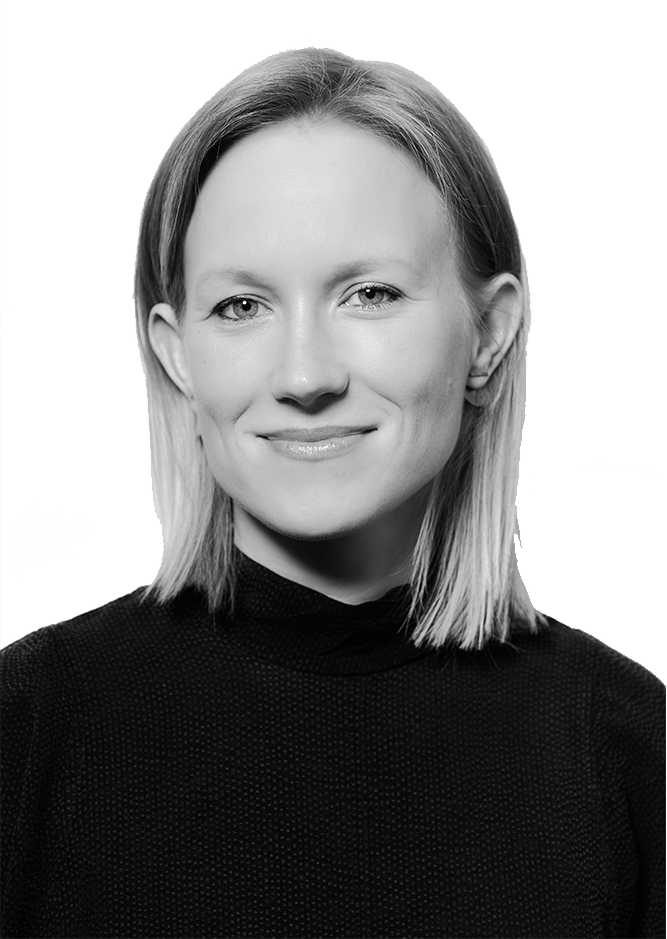
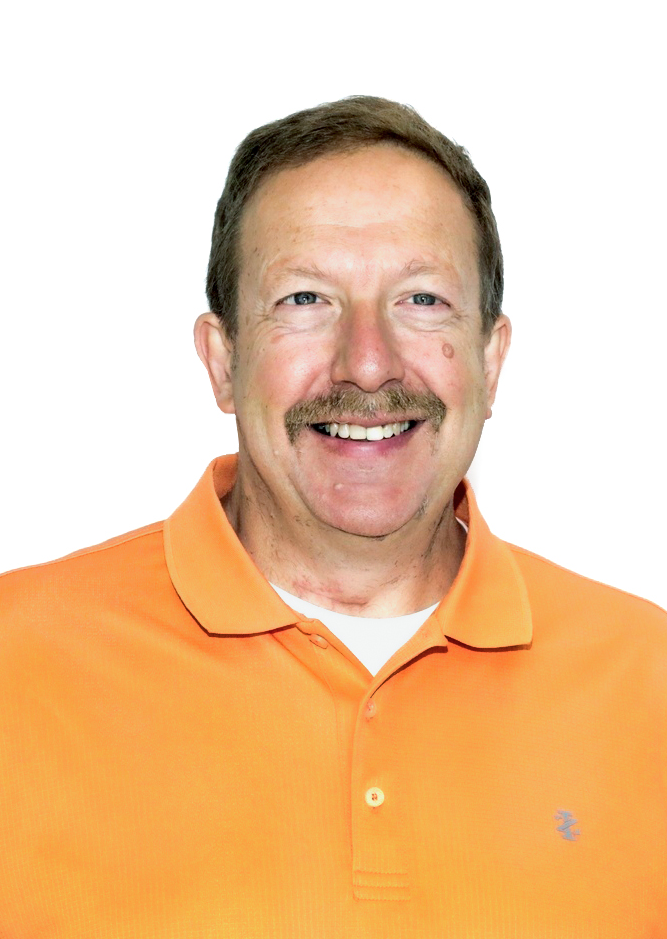
Now his company boasts a catalog of innovative events using the power of play as a learning tool and tapping into the correlation between work and play. He says he is guided by Plato’s credo: “You learn more about a person in an hour of play than in a year of conversation.”
David is quick to move with the times, consistently bringing new and innovative ideas into the team building industry. In 2020 alone, TeamBonding released this Team Building Around the World Podcast, a Webinar Series, and was among the first to originally have virtual events even before the global need for it arose. No matter where your location is, TeamBonding has a proven solution to build your team.
" I think it, it opens up a lot of opportunity, not only for companies to access different types of workers than they would have had before."- David
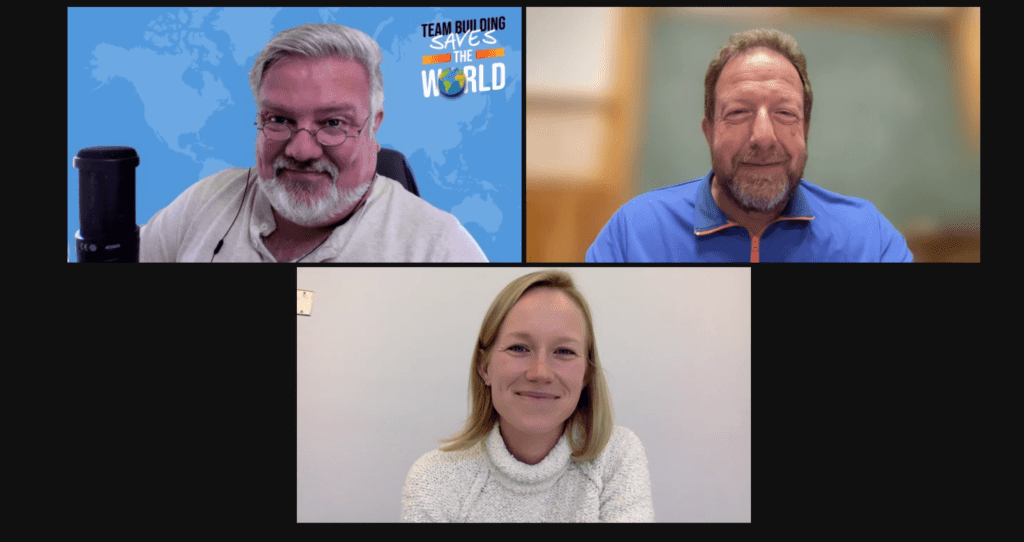
Get more human resources and leadership advice.
Less drama? Greater teamwork and job satisfaction? TeamBonding is here to help you build a stronger and happier team. Subscribe to get our team building podcast and thought leadership blogs sent straight to your inbox.





